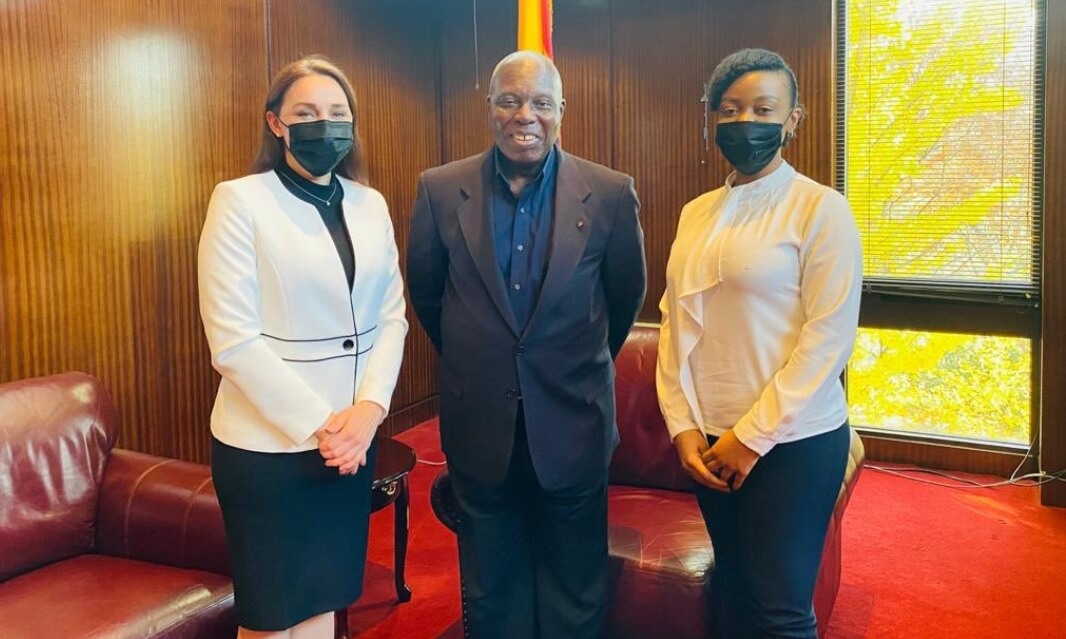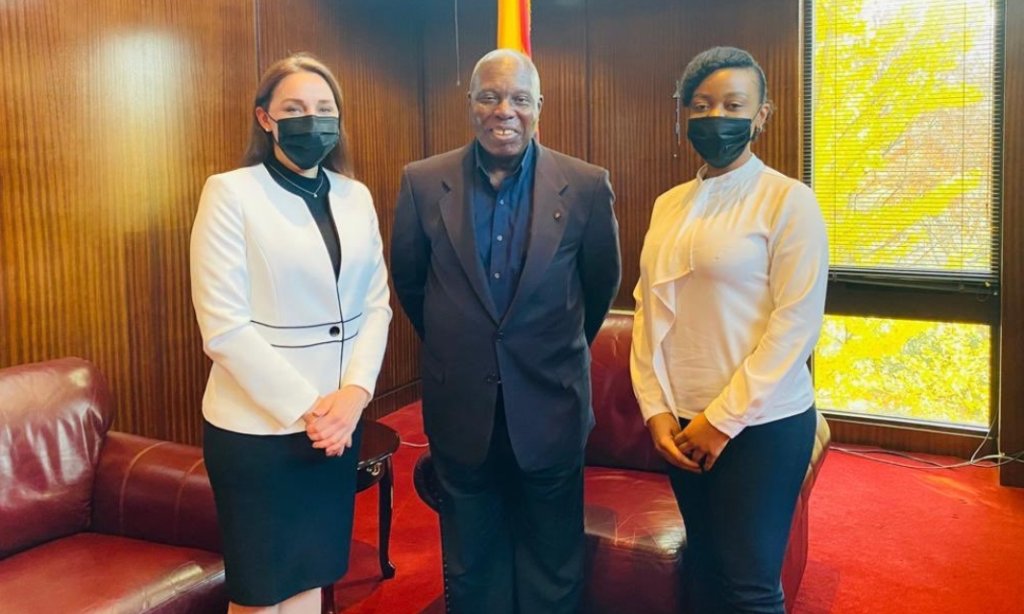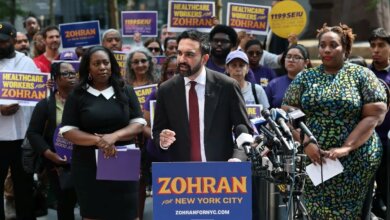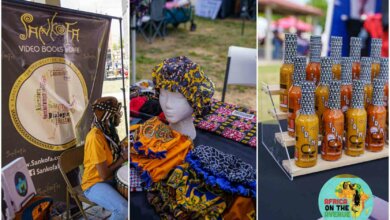Ghana’s Ambassador to U.S. Dr. Barfour Adjei-Barwuah on African Diaspora

Voice of America’s web series, Straight Talk Africa, featured His Excellency (HE) Dr Barfuor Adjei-Barwuah, Ghana’s Ambassador to the United States (US), in a 2019 episode. His interview reminded viewers that the Year of Return was a way to bridge the distance between Ghanaians all over the world and their original or inherited home country, Ghana.
Folding them back into the resurgence of efforts to keep Ghana economically advancing both supported the connectedness of Ghanaians living as part of the African Diaspora and the “Ghana Beyond Aid” strategy.
Adjei-Barwuah described the areas near the southernmost coast at Cape Three Points as being approximately 4-degrees [30′] north of the equator to express the uniqueness of a beautiful and special country. “If someone stood at the juncture between the two points, whichever direction they move, Ghana would be the first country they hit. So, when God was doing his business, he was probably standing on Ghanaian soil.”

As one of Ghana’s biggest supporters of the diaspora community, H.E. Adjei-Barwuah continued these conversations from the Ghana Embassy in Washington, D.C., in November 2020 when he discussed several topics with me for a KAFTAN TV video interview. The Biden-Harris Administration’s current plan to support the African Diaspora in the United States was a highlight of our discussion.
Interview: “Diaspora, not a Qualification, a Responsibility”
Kristi Pelzel – “Most recently, the Biden-Harris Presidential Team put out what they say is an agenda or plan for the African Diaspora Community in the US The idea of the plan is to identify the unique needs of this community and encourage them to participate in US societies and communities.”
“So, not necessarily referring to the plan directly, but speaking around the idea of what the plan means, as we see high-level leadership acknowledging the African Diaspora, calling them out individually, and recognizing that they have unique needs. What do you think about that, and what does that look like on the ground?”
H.E Adjei-Barwuah – “I suppose the Biden intent is a way of America finally interpreting what America has always claimed she is, a melting pot. Because most of the people who have been classified as being members of the diaspora, the African Diaspora, have always been considered as some kind of transient population, and therefore their participation in the generality of American society has always been a bit marginal.”
“And people have felt that way because of open or not so open racial relationships in the country. So, now, if the President-elect has an intention and a plan to, as it were, get people in the diaspora involved in American life, especially those who are American citizens anyway, because for them you can sort of, on a base-level, interpret every American citizen has always been members of a diaspora because of the genesis of their being here.“
“So, in trying to get the African Diaspora involved, I think it’s a very welcome idea, and as I said, it establishes America’s personality as being a welcoming society and a melting pot as they put it.“
“You have to recognize that if any country exemplifies the world, it should be America because America has every colouration, every background from anywhere, and if you look at American names, it tells you the whole world is here. So, I think if you look at the whole Biden plan, it’s probably what is going to make America the country that America has always aspired to be, a great leader, and an inspiration for virtually everybody.”
“My hope is that that plan would advance African participation, but it should also stop short of making people from the diaspora consider that term “diaspora” a qualification in itself. It isn’t. It’s actually a responsibility for them to actively contribute to American civilization and American advancement, and maybe through that it will bounce off on those of us who are relatives of the African Diaspora, and who need to improve our relationships with the US”
“And I believe where the African Diaspora has been brought into the generality of American life it will bounce off, it will improve on the bilateral relationships in American and African countries and, as well as, America as a country and her relationship with Africans everywhere, with the A.U., and other organs of the A.U. It will probably, in that case, make the world a safer place than it’s been so far.”
The Importance of the African Diaspora Community
The US Census figures from 2018 reported 2,403,564 foreign-born Africans in the United States of America. That number, since 2018, has only grown. Worldwide it’s a much more staggering number, CNN calling it “Africa’s Secret Weapon,” The World Bank projected remittance flows from members of the diaspora to low and middle-income countries, to reach $551 billion in 2019 and over $600 billion by 2021 (The World Bank, 2019).
Ghana’s deliberate policies to attract diaspora investors reflect the knowledge of the diaspora’s success, which also includes what African-Americas can bring to the country. This trend has helped Ghana realize less dependence on aid and deeper relationships with global communities.
Under President Nana Akufo-Addo’s Administration, Ghana Beyond Aid outlined in the 2019 charter strategy called for “the need for a paradigm shift in mindset and behaviours,” building relationships and partnerships with private industry to include the member of the diaspora.
Ghana Beyond Aid pairs with Beyond the Return: The Diaspora Dividend, a multi-million dollar investment program to enable members of the diaspora to invest in multiple sectors of Ghana’s society and infrastructure, nesting them into the country emotionally, physically, and financially.
What helps the efforts of diaspora champions like H.E. Adjei-Barwuah are the leaders of other countries working parallel to support and recognize not only the contributions that members of the African Diaspora are capable of making, but how good relationships with members of the diaspora will improve foreign relations, build trust, and open new opportunities.
“So, I think the other countries, those that define us and those whose relationships we need to build up Africa’s potential, would have to be a little more reasonable. A little more supportive of the African effort because no matter how we see it, we are going to have to deal, you know, with these advanced countries for quite some time.” – H.E. Adjei-Barwuah
Written by Kristi Pelzel — an international communications consultant and advisor working across the US and African markets. She is a Chief Global Correspondent for KAFTAN TV. Her industry experience spans broadcast, digital, and social media communication, and is a member of The National Press Club in Washington, D.C. Kristi holds a B.A. from the Academy of Art University, San Francisco, California, and an M.A. from Georgetown University, Washington, D.C..
Oral Ofori is Founder and Publisher at www.TheAfricanDream.net, a digital storyteller and producer, and also an information and research consultant.




